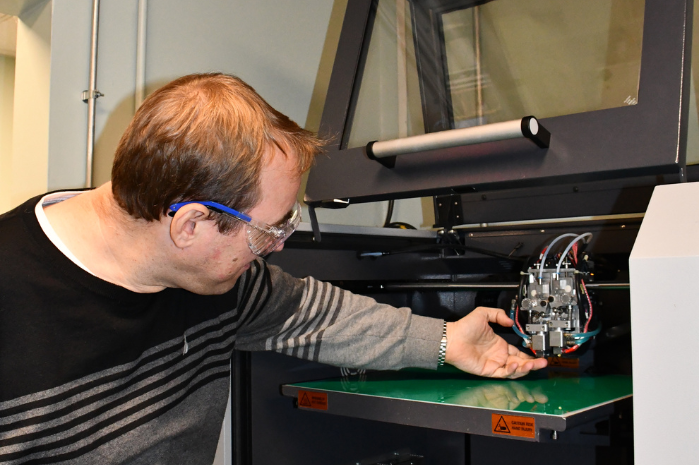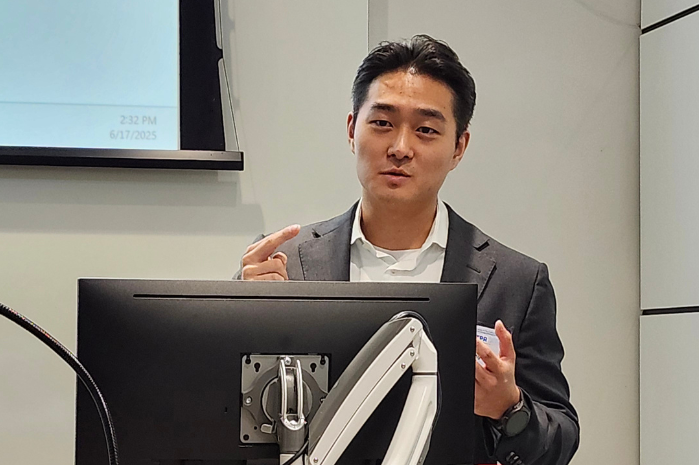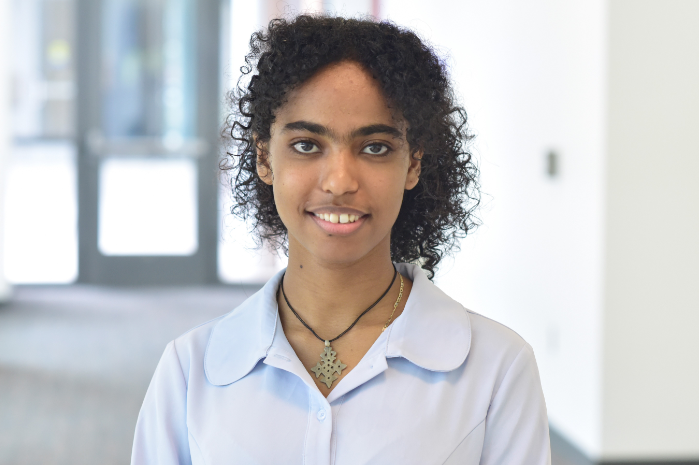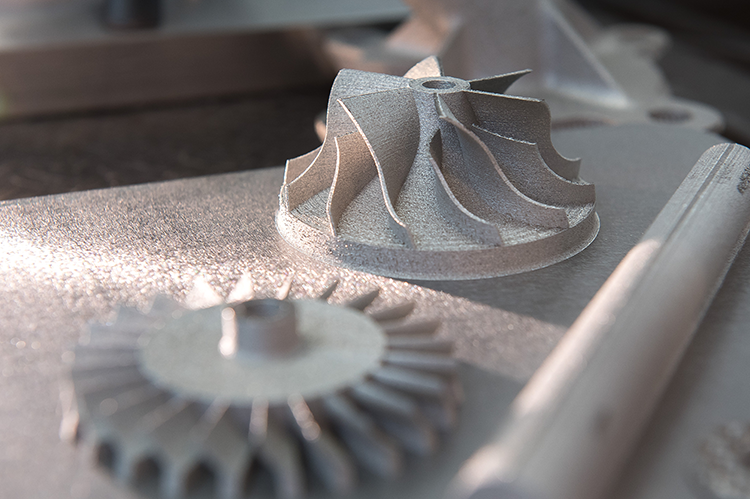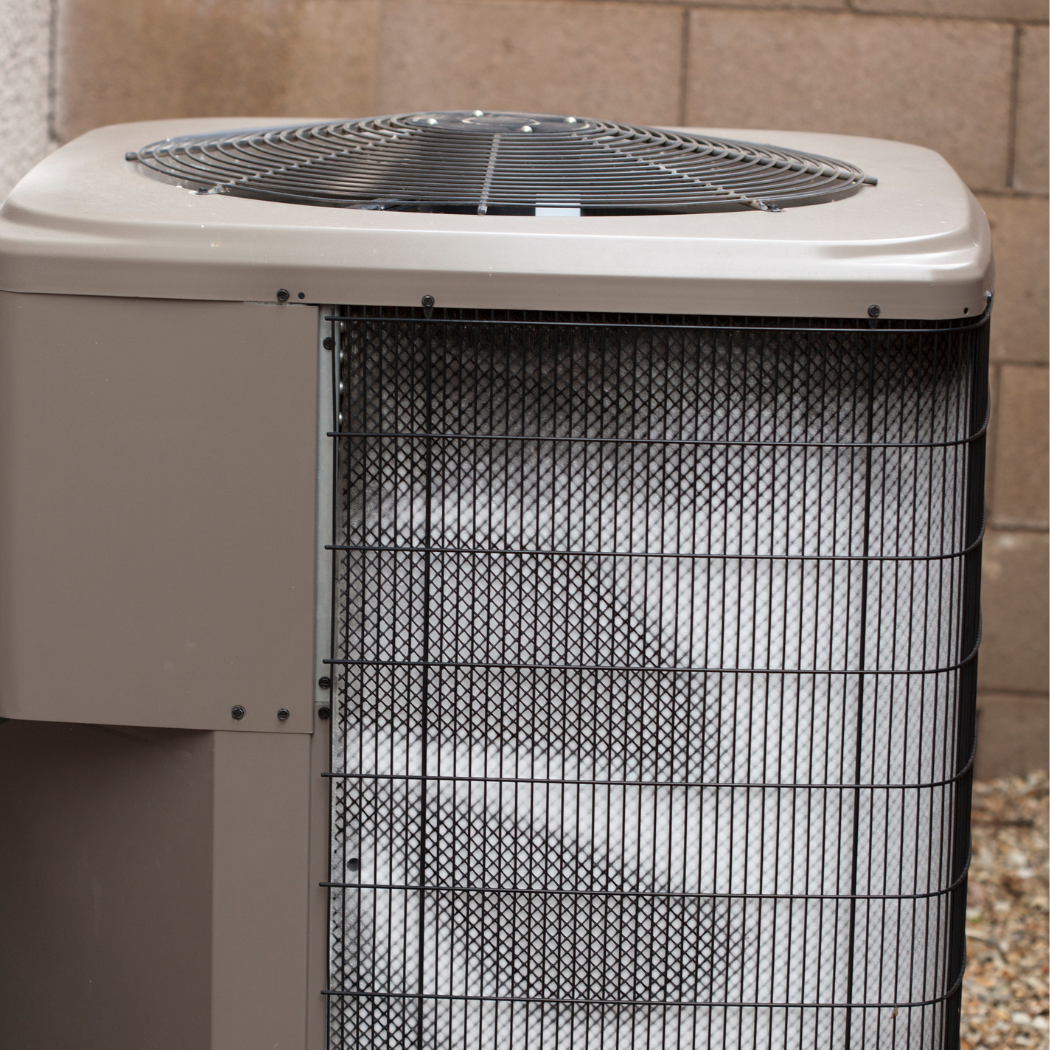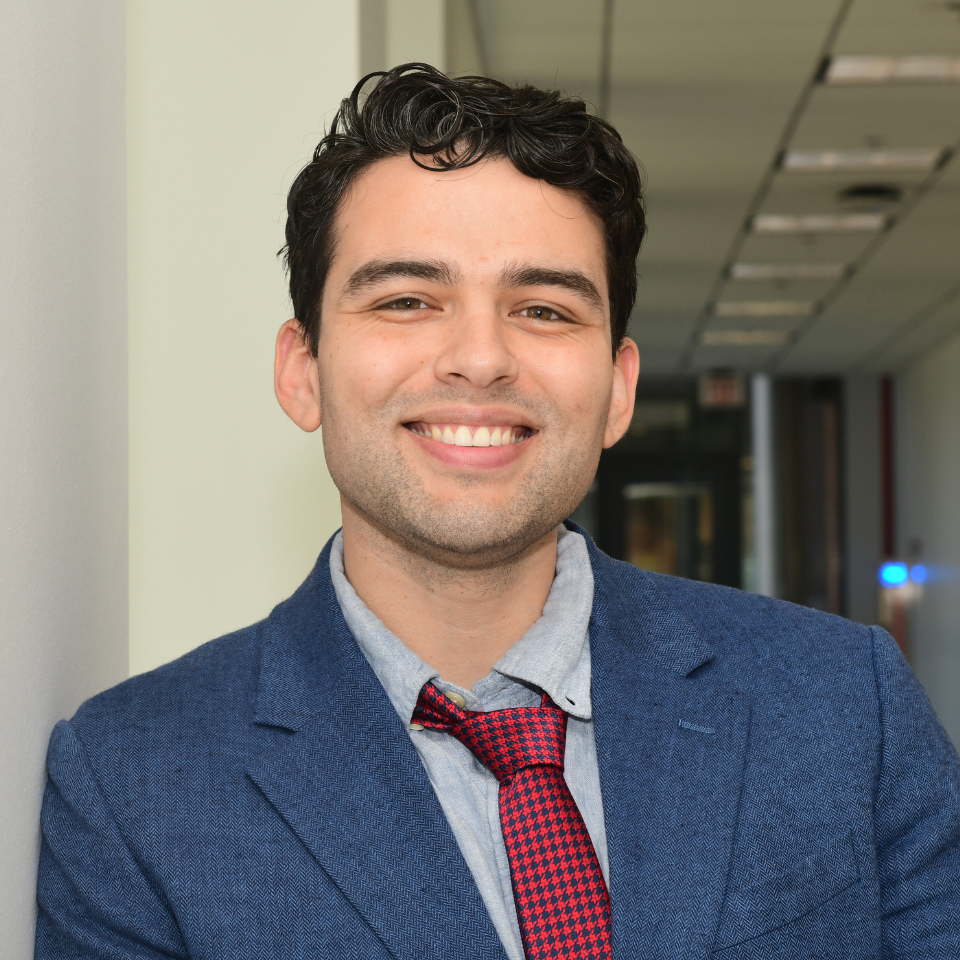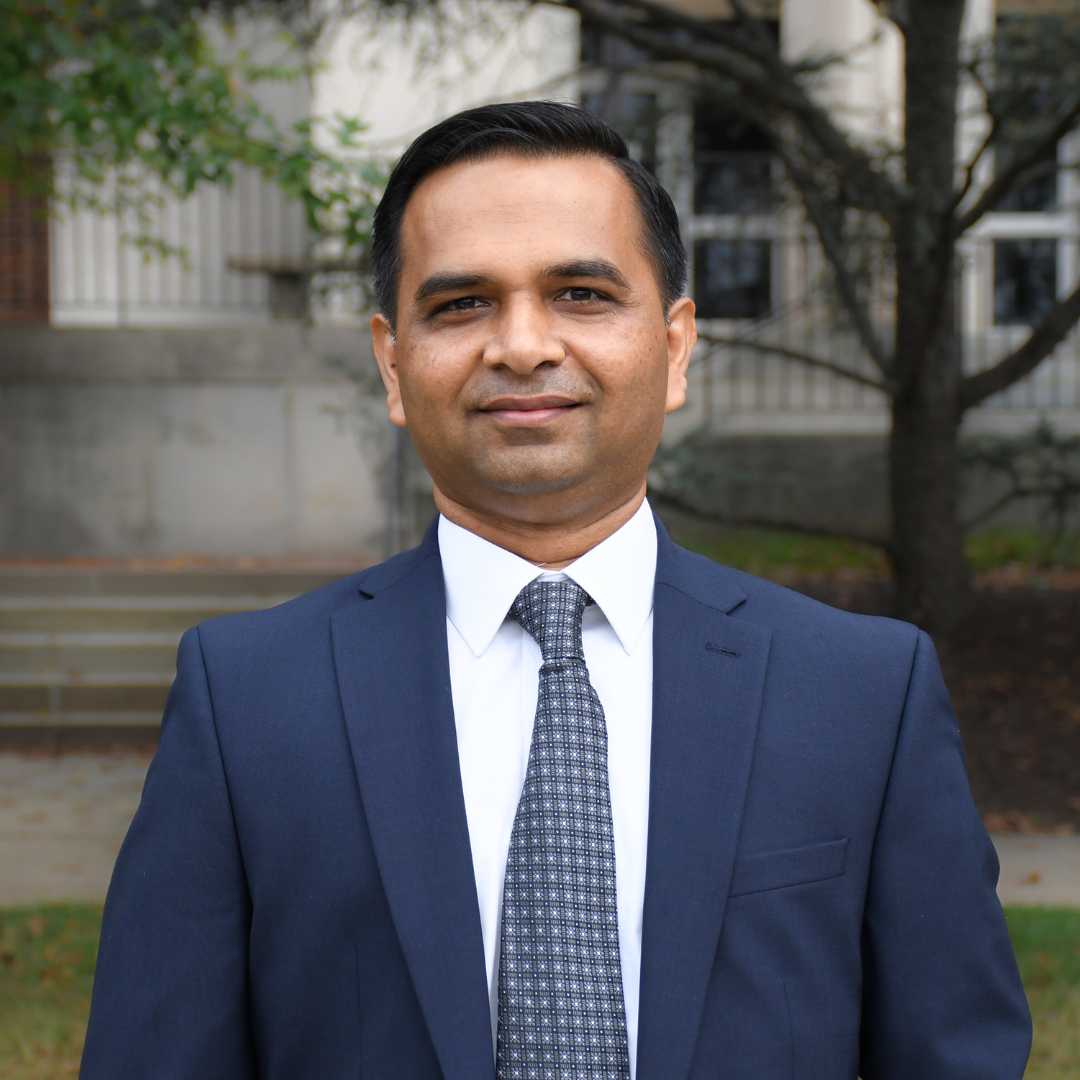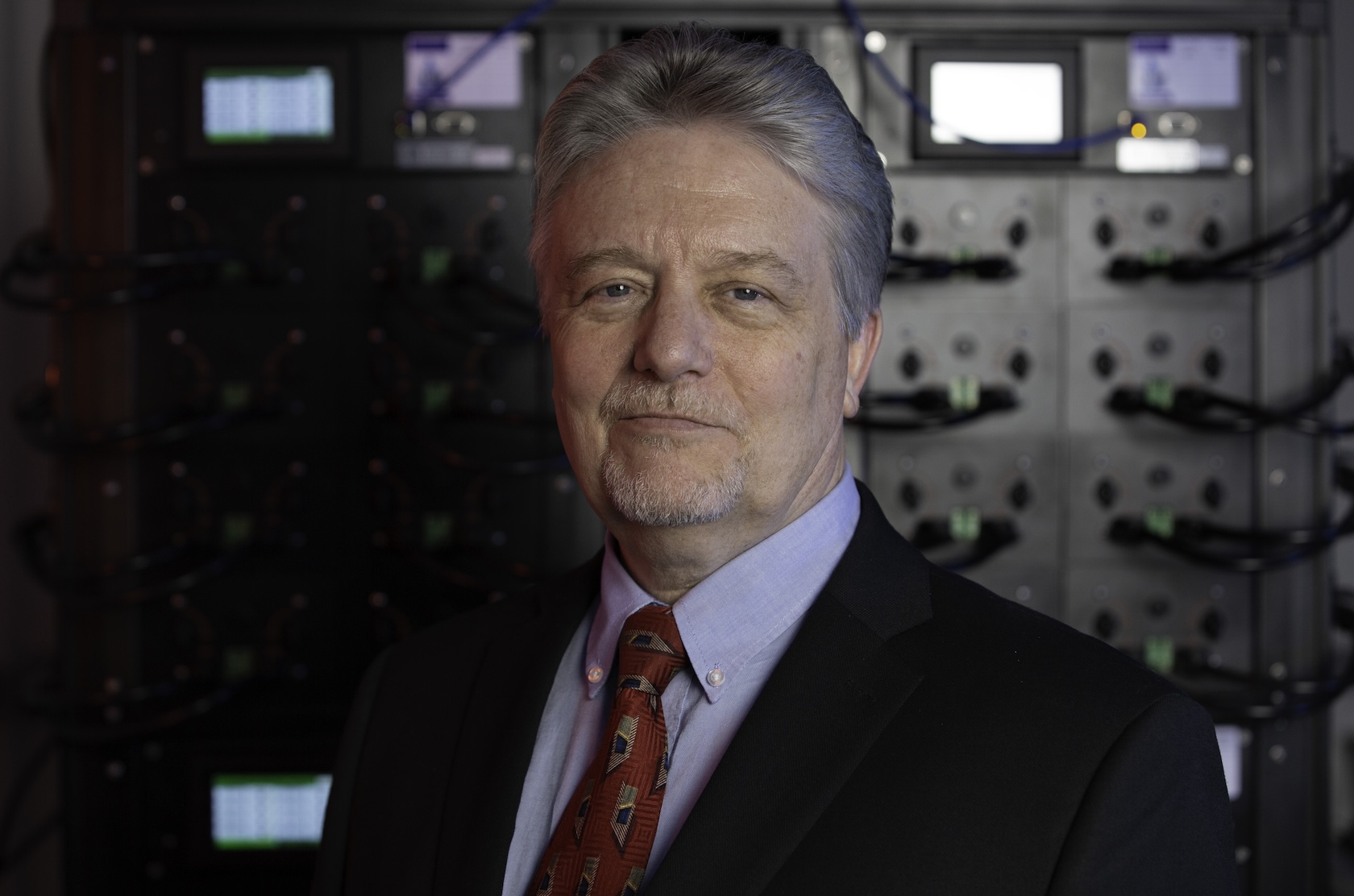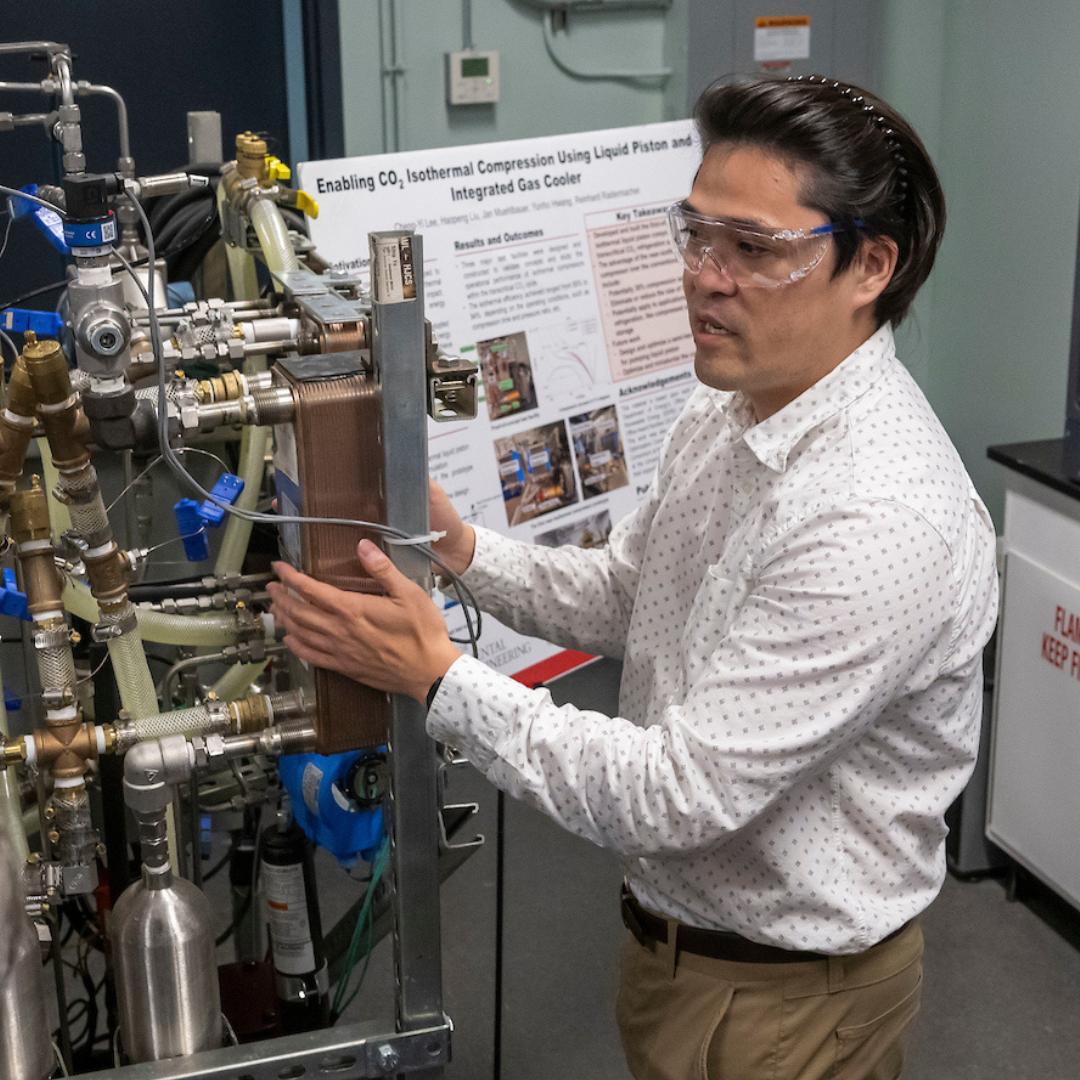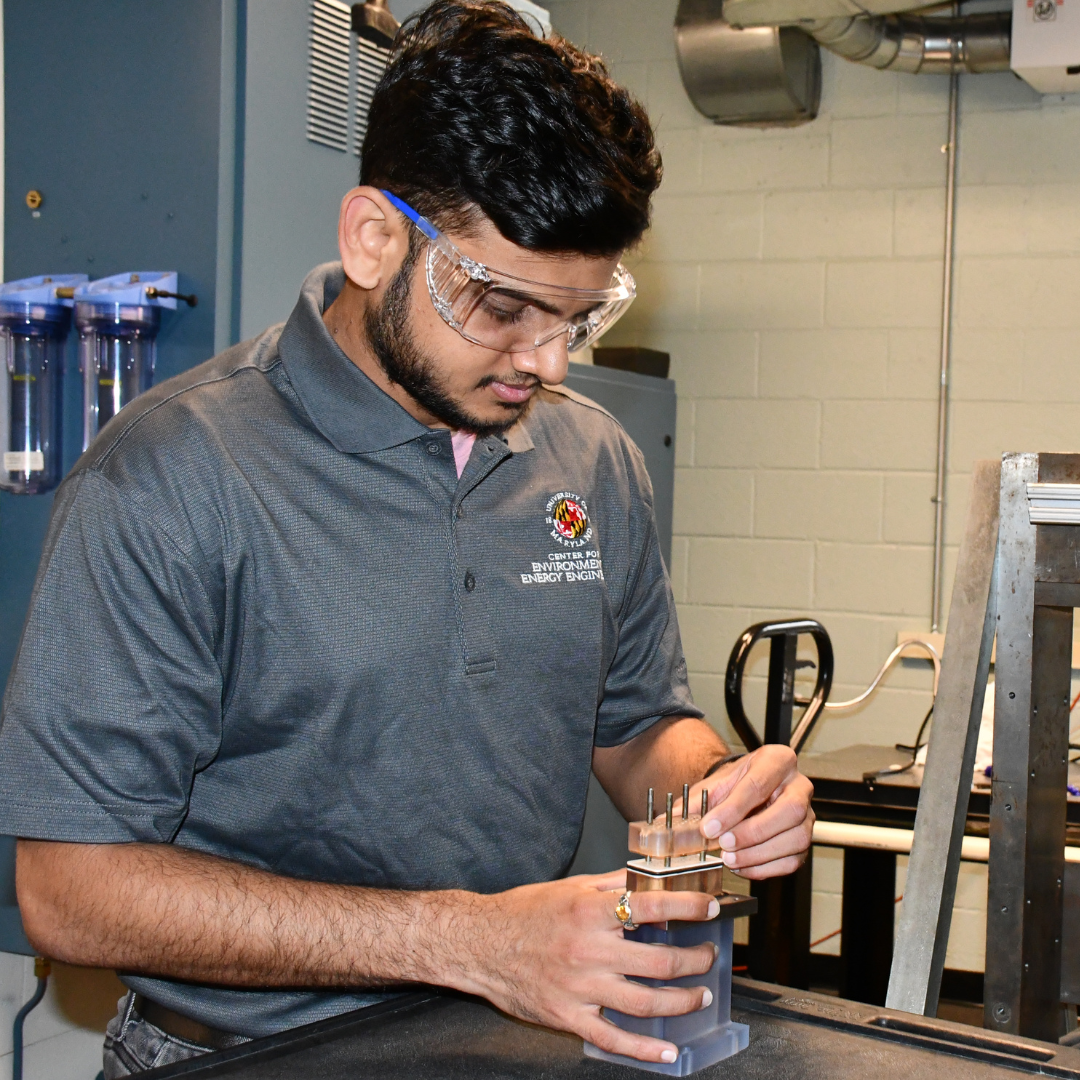News Story
Dissertation Presents a Novel Thermal Energy Storage System to Help Prevent Grid Overloads
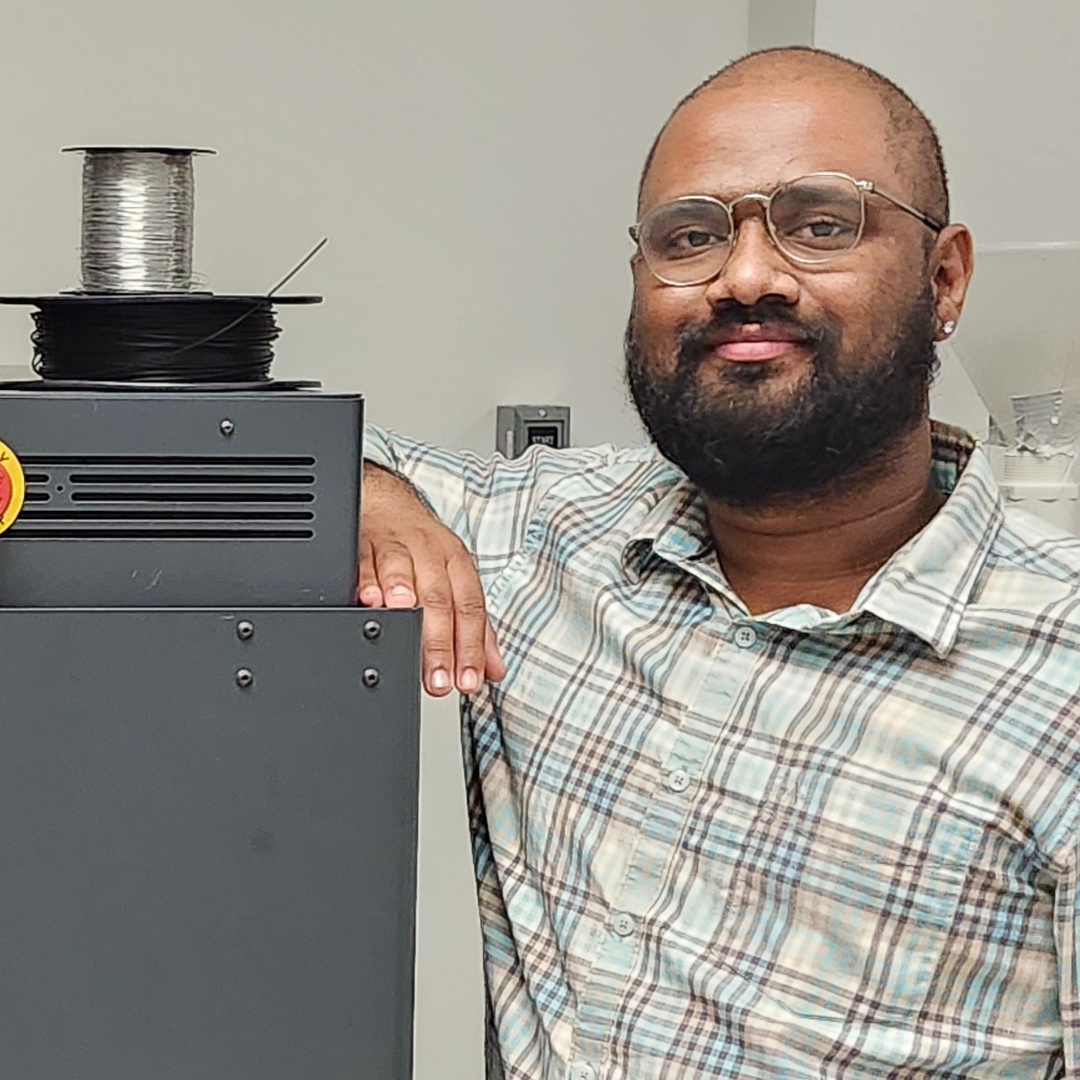
Congratulations to Veeresh Ayyagari on successfully defending his Ph.D. dissertation, “An Additively Manufactured, Salt Hydrate-Based Latent Heat Thermal Energy Storage for Peak Load Shifting in Building Equipment.”
Ayyagari’s research tackles a core concern in energy management – imbalances in electricity demand and supply that raise the risk of power grid failures and blackouts. Think about when the power goes out during a heat wave because of the huge strain on the grid.
For his dissertation, Ayyagari designed a compact thermal energy storage (TES) system, which can be integrated into a building’s cooling and heating systems, to store energy during low-demand times and draw on it during peak times. This “peak load shifting” reduces the risk of grid overload and is economical, because energy is stored when it’s least costly and used during more expensive peak periods. “This is going to give energy savings, and energy savings equals monetary savings,” Ayyagari said during his dissertation presentation.
Ayyagari conducted his research in UMD’s Smart and Small Thermal Systems Laboratory, through CEEE’s Advanced Heat Exchangers and Process Intensification Consortium. His research was advised by CEEE Co-Founder and Minta Martin, Professor Michael Ohadi and co-advised by Research Professor Amir Shooshtari. Ayyagari has accepted a position at Tesla, with a focus on ensuring reliability in thermal systems.
A searchable listing of CEEE theses and dissertations published 2003-2024 is available online.
Published September 15, 2025
